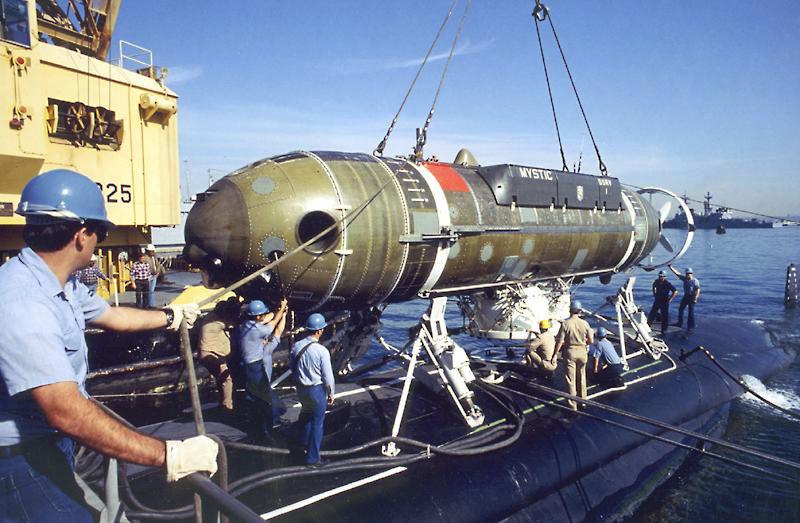The Indian Navy Wednesday inducted its first ‘Deep Submergence Rescue Vehicle’ into service here and was in the process of acquiring one more soon to deploy the vessels permanently at Mumbai and Visakhapatnam.
With the DSRV’s induction, the Indian Navy has joined the select league of world navies that have an integral submarine rescue capability, Chief of the Naval Staff Admiral Sunil Lanba said after the induction at the Western Naval Command here.
The maiden trials of the DSRV were successfully completed on October 15.
“The DSRV (induction) is a landmark event and it marks the culmination of years of focused efforts of the Navy in acquiring niche submarine rescue capability. With these capabilities, the Indian Navy has joined the select league of navies that operate such assets,” Admiral Lanba said.
The second vehicle has already left for delivery to India and will be based at the naval base in Visakhapatnam, he said.
The endeavour is to provide rescue services in the Indian Ocean region and beyond, he said, adding that the Navy can extend services to friendly nations.
INS Nistar was the first submarine rescuer followed by INS Nireekshak which carries out dual role of diving support and submarine rescue vessel, he noted.
“A need was felt as early as 1980s to induct a dedicated, non-tethered DSRV to match the growing reach and depth of our submarines,” Lanba said.
The inducted submarine — a third generation product of Scotland-based JFD, a part of James Fisher and Sons Plc — has the latest technology and capability, he said.
The vehicle is currently deployed on mother ship INS Sabarmati, provided by the Shipping Corporation of India, which will be placed in Mumbai.
JFD has won the contract of 193 million pounds for the supply and 25 years of maintenance of the two DSRVs.
More than 80 naval personnel have undergone training on DSRV operations and its exercises will continue in future as well, a Naval official said.
The vehicle can rescue as many as 14 people in one dive, the official said.
The Navy has also given a Rs 9,000 crore contract to the Hindustan Shipyard Limited for building two mother ships for DSRVs and deliver them by 2020, the official said.
The DSRV will be permanent deployed on the mother ship and it can be flown away in case of emergency rescue, the Navy said.
During the trials, the DSRV carried out underwater mating with a bottomed submarine, at a depth of over 300 feet. On successful mating, the DSRV opened its hatches and the submarine hatches and carried out transfer of personnel from the submarine to the DSRV, the Navy said.
These sea trials have proven the newly inducted DSRV’s ability to undertake rescue operations from disabled submarines at sea and provided the Navy with a critical capability, it said.
During the trials, the DSRV also dived successfully up to 666 metres, which is a record for deepest submergence by a ‘manned vessel’ in Indian waters.
The DSRV crew carried out remotely operated vehicle operations at a depth of over 750 metres and side scan sonar operations at a depth of over 650 metres, which are all ‘firsts’ for the Indian Navy, the release said.
Source:ET
You may also like
-
IAF Aircraft Set Course For Exercise Eastern Bridge VII At Oman
-
IAF Set To Host The Indian Defence Aviation Exposition-II At Jodhpur
-
Defence Secretary to co-chair 5th India-Philippines Joint Defence Cooperation Committee meeting in Manila
-
Simultaneous Launch Of ‘malpe And Mulki’, Fourth And Fifth Ships Of Asw Swc (Csl) Project
-
Aatmanirbharta in Defence: MoD signs Contract with HAL for 240 AL-31FP Aero Engines for Su-30MKI Aircraft
